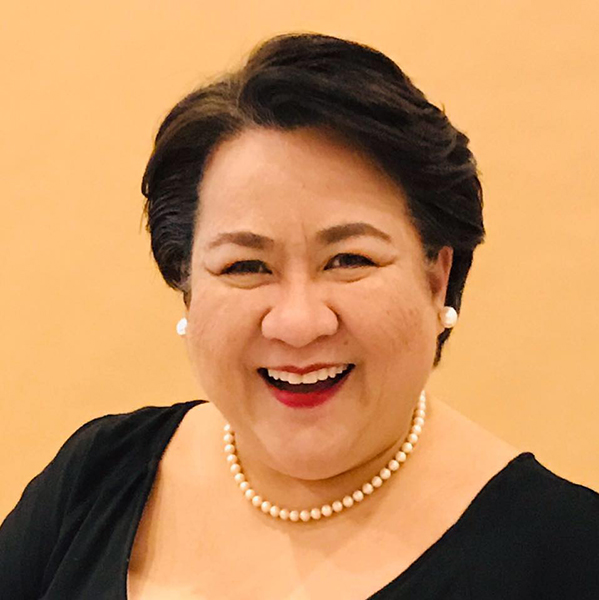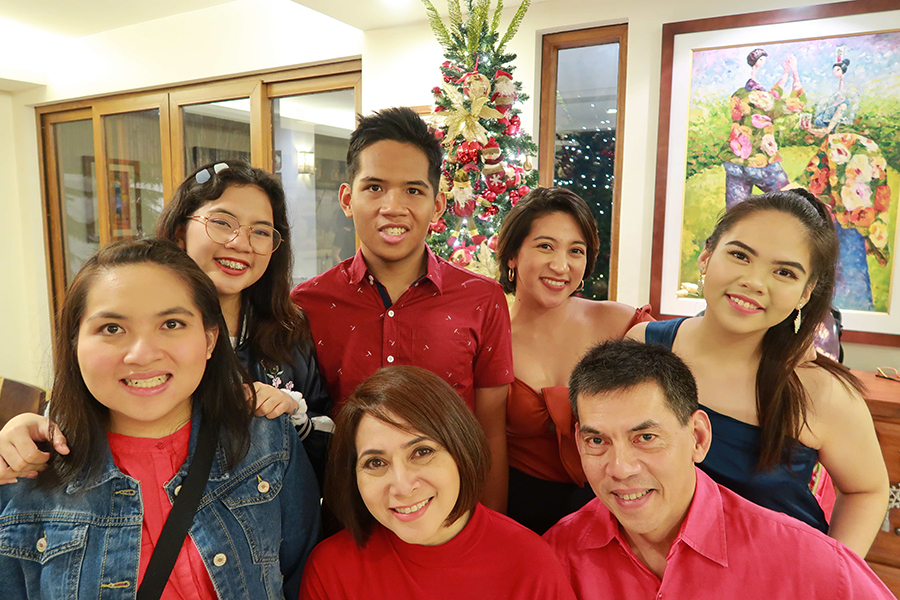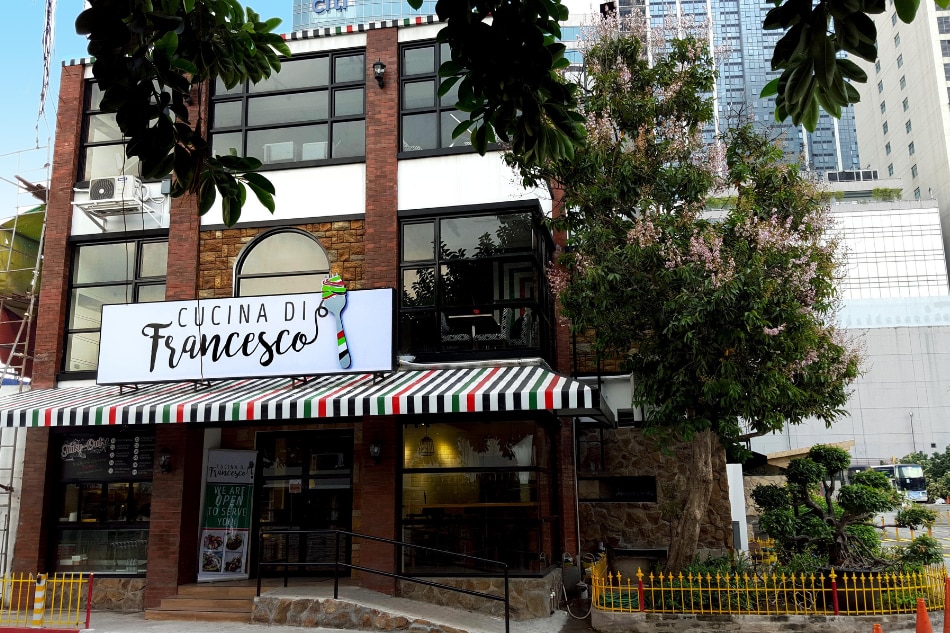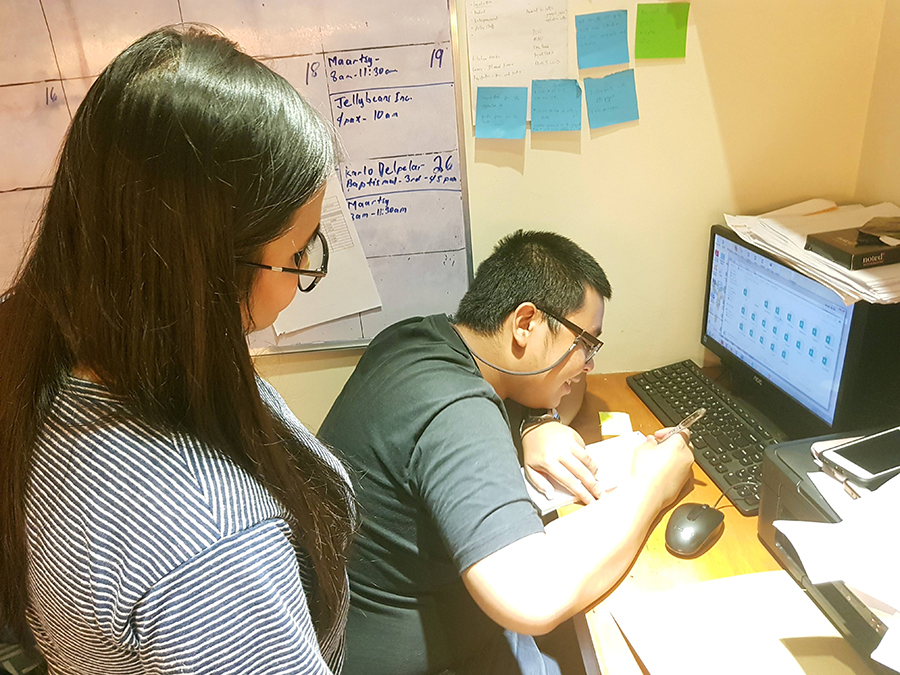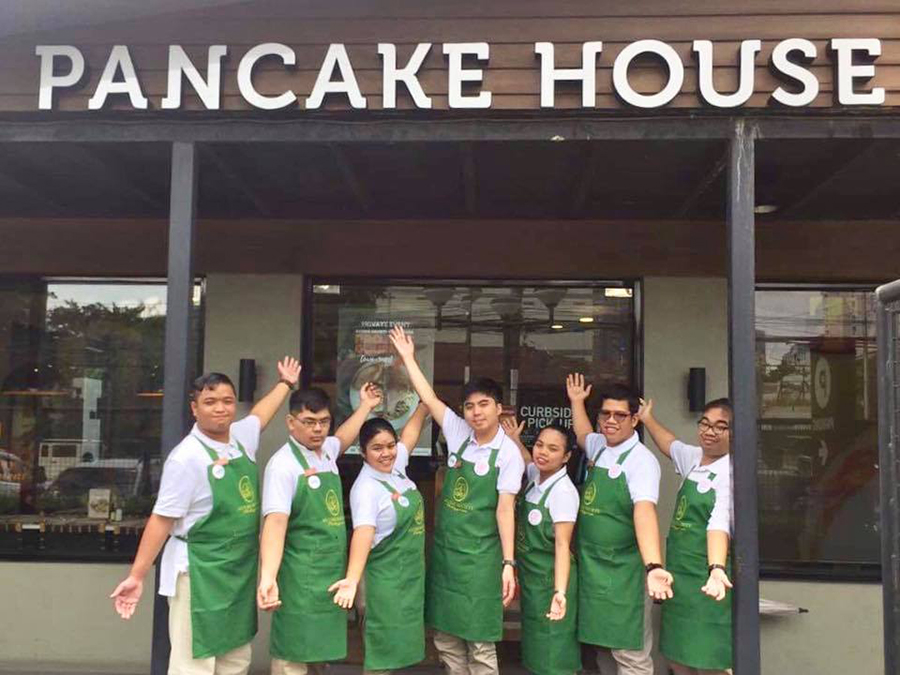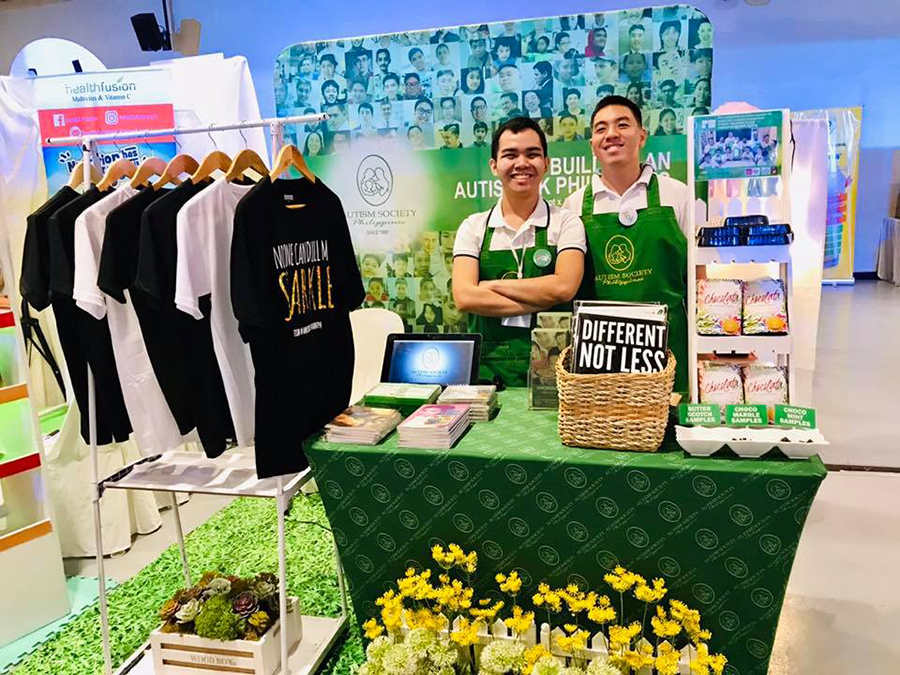Supporters of PWDs speak: It’s real PWDs who suffer when people abuse PWD discount cards | ABS-CBN

Welcome, Kapamilya! We use cookies to improve your browsing experience. Continuing to use this site means you agree to our use of cookies. Tell me more!
Supporters of PWDs speak: It’s real PWDs who suffer when people abuse PWD discount cards
Supporters of PWDs speak: It’s real PWDs who suffer when people abuse PWD discount cards
ANCX
Published Jul 01, 2020 02:43 PM PHT
There’s been lots of buzz lately about the abuse of discount privileges for senior citizens and persons with disabilities (PWDs). Much of the focus has been on those people who procure PWD cards by fraudulent means in order to avail of the significant 20% discount on various goods and services, most notably restaurants. While many restaurant owners have decried this abuse, perhaps lost in the discussion is how this issue can affect legitimate PWD card holders who are entitled to these privileges under Republic Act 9442.
There’s been lots of buzz lately about the abuse of discount privileges for senior citizens and persons with disabilities (PWDs). Much of the focus has been on those people who procure PWD cards by fraudulent means in order to avail of the significant 20% discount on various goods and services, most notably restaurants. While many restaurant owners have decried this abuse, perhaps lost in the discussion is how this issue can affect legitimate PWD card holders who are entitled to these privileges under Republic Act 9442.
Recognizing legitimate PWDs
Recognizing legitimate PWDs
ANCX spoke with one restaurant owner, Mary Rose Peña of Cucina di Francesco in Pasig, who, like many, has encountered her fair share of fraudulent PWD IDs. However, her approach has been a little more nuanced, perhaps due to the fact that she is also the mother of two teenagers who happen to be PWD cardholders. “As restaurateurs, we should grant discounts to bearers of the IDs,” she shares. “We also cannot pass judgment on the bearers of the ID because some of them, especially high functioning PWDs, look and act normally.”
ANCX spoke with one restaurant owner, Mary Rose Peña of Cucina di Francesco in Pasig, who, like many, has encountered her fair share of fraudulent PWD IDs. However, her approach has been a little more nuanced, perhaps due to the fact that she is also the mother of two teenagers who happen to be PWD cardholders. “As restaurateurs, we should grant discounts to bearers of the IDs,” she shares. “We also cannot pass judgment on the bearers of the ID because some of them, especially high functioning PWDs, look and act normally.”
“I do think that because of these abuses, people do start doubting those without physical disabilities,” admits Mona Magno Veluz, National President of the Autism Society Philippines (ASP). This 31-year-old nationwide organization has around 13,000 members consisting of parents of persons on the autism spectrum, institutions, professionals, as well as a fast-growing segment of self-advocates.
“I do think that because of these abuses, people do start doubting those without physical disabilities,” admits Mona Magno Veluz, National President of the Autism Society Philippines (ASP). This 31-year-old nationwide organization has around 13,000 members consisting of parents of persons on the autism spectrum, institutions, professionals, as well as a fast-growing segment of self-advocates.
Veluz illustrates the possible consequences for those with “invisible” disabilities. “Several months back, there was this celebrity who went to a newly opened burger joint in BGC. He saw somebody take a PWD card out, and because the line was very long and the PWD line was shorter, [that person] went and used the discount. [The celebrity] started ranting, saying that if you’re not in a wheelchair, you can’t use the PWD line. That is actually a very sad display of the lack of understanding for autism. It was kind of like equating invisible disabilities like autism with being a fraud or being somebody who is just playing that card when they actually don’t have the disability.”
Veluz illustrates the possible consequences for those with “invisible” disabilities. “Several months back, there was this celebrity who went to a newly opened burger joint in BGC. He saw somebody take a PWD card out, and because the line was very long and the PWD line was shorter, [that person] went and used the discount. [The celebrity] started ranting, saying that if you’re not in a wheelchair, you can’t use the PWD line. That is actually a very sad display of the lack of understanding for autism. It was kind of like equating invisible disabilities like autism with being a fraud or being somebody who is just playing that card when they actually don’t have the disability.”
ADVERTISEMENT
Veluz gives a backgrounder on the reasons behind the PWD card. “If you look at the intention for it, it was primarily to help identify persons with disabilities so that they can get accommodations. It was also a way for the local government unit to map persons with disabilities so they would know how many they have and where they live, so whenever there are programs, they would be able to reach out to that particular group easily. However, because it is also an economic instrument, you get discounts from it, then it became more than just a tool for identifying the population. It became something that people with nefarious intentions want to abuse.”
Veluz gives a backgrounder on the reasons behind the PWD card. “If you look at the intention for it, it was primarily to help identify persons with disabilities so that they can get accommodations. It was also a way for the local government unit to map persons with disabilities so they would know how many they have and where they live, so whenever there are programs, they would be able to reach out to that particular group easily. However, because it is also an economic instrument, you get discounts from it, then it became more than just a tool for identifying the population. It became something that people with nefarious intentions want to abuse.”
“We don’t want to be fraudulent, but as a community of persons on the spectrum and those who love them, we know that, specially for the adults on the spectrum, they don’t have the same economic opportunities that people their age have,” explains Veluz. “These very small discounts actually help level the playing field just a little bit. This should be given to them because that was the intention of the law.”
“We don’t want to be fraudulent, but as a community of persons on the spectrum and those who love them, we know that, specially for the adults on the spectrum, they don’t have the same economic opportunities that people their age have,” explains Veluz. “These very small discounts actually help level the playing field just a little bit. This should be given to them because that was the intention of the law.”
But if loopholes do exist in the process, Veluz says, “If they are unable to implement the law properly or there’s a loophole around it, then I think they should change the law, change the IRR (the implementing rules and regulations), and empower LGUs to implement the law without losing track of the original intention of the law. I think the overly dramatic instances or reactions of some LGUs now make it more difficult for individuals to exercise their rights.”
But if loopholes do exist in the process, Veluz says, “If they are unable to implement the law properly or there’s a loophole around it, then I think they should change the law, change the IRR (the implementing rules and regulations), and empower LGUs to implement the law without losing track of the original intention of the law. I think the overly dramatic instances or reactions of some LGUs now make it more difficult for individuals to exercise their rights.”
From accommodation to inclusion
From accommodation to inclusion
When Mary Rose Peña dines out with her family, her children’s PWD cards are a way for an establishment to better recognize and accommodate the needs of her children with special needs. Peña, her husband, and their five children enjoy going to casual restaurants that serve American, Italian, Spanish, and Korean dishes, “because these are my kids’ favorites.” To make sure the experience is easy for everyone, Peña explains, “Before going to the restaurant, often I would call and inform the restaurant that I would be bringing two PWDs. When calling for a table reservation, I would choose a location that would be less noisy or busy for my special children.” She elaborates, “This way, the restaurant would be ready to attend to my autistic children, assign staff who are prepared to attend to them, and be ready also to give the appropriate discounts for their meals.”
When Mary Rose Peña dines out with her family, her children’s PWD cards are a way for an establishment to better recognize and accommodate the needs of her children with special needs. Peña, her husband, and their five children enjoy going to casual restaurants that serve American, Italian, Spanish, and Korean dishes, “because these are my kids’ favorites.” To make sure the experience is easy for everyone, Peña explains, “Before going to the restaurant, often I would call and inform the restaurant that I would be bringing two PWDs. When calling for a table reservation, I would choose a location that would be less noisy or busy for my special children.” She elaborates, “This way, the restaurant would be ready to attend to my autistic children, assign staff who are prepared to attend to them, and be ready also to give the appropriate discounts for their meals.”
It helps if service staff are trained to understand persons with disabilities, especially those on the autism spectrum who don’t fit any one mold in terms of outward behavior. Veluz brings up an “unfortunate incident” regarding SM Malls that thankfully became an opportunity for learning. “There was a situation where a young man on the spectrum was separated from his mother in the mall, and because the security guards did not understand that this person has autism, they thought he was a drug addict so he was kicked out of the mall. They helped the family look for the individual. When ASP came to them, talking about this issue, top management didn’t just wash their hands off it. In fact, what they did is they created education programs, and that was the start of what is now known as SM Cares.”
It helps if service staff are trained to understand persons with disabilities, especially those on the autism spectrum who don’t fit any one mold in terms of outward behavior. Veluz brings up an “unfortunate incident” regarding SM Malls that thankfully became an opportunity for learning. “There was a situation where a young man on the spectrum was separated from his mother in the mall, and because the security guards did not understand that this person has autism, they thought he was a drug addict so he was kicked out of the mall. They helped the family look for the individual. When ASP came to them, talking about this issue, top management didn’t just wash their hands off it. In fact, what they did is they created education programs, and that was the start of what is now known as SM Cares.”
You may also like:
You may also like:
- Help local businesses and get 50 percent off on special vouchers
- A family tries to use six PWD cards to order food from a QC restaurant—and gets cyberbullied
- We can all dine inside Jollibee again soon—but this is how it’s gonna look like
- Exclusive: Restaurant owners reveal horror stories of abuse of senior and PWD cards
- Help local businesses and get 50 percent off on special vouchers
- A family tries to use six PWD cards to order food from a QC restaurant—and gets cyberbullied
- We can all dine inside Jollibee again soon—but this is how it’s gonna look like
- Exclusive: Restaurant owners reveal horror stories of abuse of senior and PWD cards
The SM Cares program involves educating mall frontliners, from security guards to restroom attendants, as well as merchants. “It started out as a problem for the mall, but eventually they took on that challenge and made their services better, and best in class,” Veluz narrates.
The SM Cares program involves educating mall frontliners, from security guards to restroom attendants, as well as merchants. “It started out as a problem for the mall, but eventually they took on that challenge and made their services better, and best in class,” Veluz narrates.
In her own restaurant, Peña does her part to make her restaurant an inclusive and welcoming space for PWDs. Cucina di Francesco happens to be beside the St. Padre Pio Chapel, and is a welcome rest stop for chapelgoers, many of whom happen to be senior citizens and PWDs (who are devotees of St. Pio). Incidentally, she decided to include the senior citizen and PWD discounts in the restaurant’s pricing structure, as a way to protect her bottom line.
In her own restaurant, Peña does her part to make her restaurant an inclusive and welcoming space for PWDs. Cucina di Francesco happens to be beside the St. Padre Pio Chapel, and is a welcome rest stop for chapelgoers, many of whom happen to be senior citizens and PWDs (who are devotees of St. Pio). Incidentally, she decided to include the senior citizen and PWD discounts in the restaurant’s pricing structure, as a way to protect her bottom line.
Peña then went a step further by offering to train young persons with special needs, starting with two students from Open Hand School. “Ibarra and Paulo were blessings to us. Since we employed them when we opened, we were able to train and develop a kinder staff. Our staff was able to work with PWDs and serve our PWD guests better,” she relates. Peña has also been training students from ALRES Philippines for the past two years. “My staff and I enjoy training PWD teens. We are impressed with their enthusiasm and work attitude,” she adds.
Peña then went a step further by offering to train young persons with special needs, starting with two students from Open Hand School. “Ibarra and Paulo were blessings to us. Since we employed them when we opened, we were able to train and develop a kinder staff. Our staff was able to work with PWDs and serve our PWD guests better,” she relates. Peña has also been training students from ALRES Philippines for the past two years. “My staff and I enjoy training PWD teens. We are impressed with their enthusiasm and work attitude,” she adds.
Autism Society Philippines has also seen a number of restaurants like Pancake House and Dohtonbori open their doors to persons with disabilities, not just as customers, but as employees. “This is actually a stark improvement from what it was a couple of years back,” Veluz remarks.
Autism Society Philippines has also seen a number of restaurants like Pancake House and Dohtonbori open their doors to persons with disabilities, not just as customers, but as employees. “This is actually a stark improvement from what it was a couple of years back,” Veluz remarks.
ASP established ASP Autism Works which Veluz describes as “a program for economic empowerment and financial literacy of persons on the autism spectrum.” The program, pre-COVID, had 220 individuals on the spectrum working with around 52 companies (malls, shops, hotels, restaurants, etc.). “I think this program allows us to go beyond awareness,” she says, stressing the program’s importance. “Because awareness is not enough. Until people have that acceptance, accommodation, appreciation, then our advocacy is not doing enough.”
ASP established ASP Autism Works which Veluz describes as “a program for economic empowerment and financial literacy of persons on the autism spectrum.” The program, pre-COVID, had 220 individuals on the spectrum working with around 52 companies (malls, shops, hotels, restaurants, etc.). “I think this program allows us to go beyond awareness,” she says, stressing the program’s importance. “Because awareness is not enough. Until people have that acceptance, accommodation, appreciation, then our advocacy is not doing enough.”
In truth, Autism Society Philippines has been doing quite a lot since it started in 1989. “There is a growing and improving understanding of persons on the autism spectrum,” says Veluz. “This is primarily because also of the advocacy that is driven by the ASP and also our government. They have tried their best to have these programs, to come up with the National Autism Consciousness Week, to have awareness raising events that help propel conversation.” And that conversation, says Veluz, should go something along these lines. “think it is really ripe for us to start talking about acceptance, accommodation, appreciation, taking that understanding of equity, equality, diversity, inclusion into practical spaces, like work, like policies in government.”
In truth, Autism Society Philippines has been doing quite a lot since it started in 1989. “There is a growing and improving understanding of persons on the autism spectrum,” says Veluz. “This is primarily because also of the advocacy that is driven by the ASP and also our government. They have tried their best to have these programs, to come up with the National Autism Consciousness Week, to have awareness raising events that help propel conversation.” And that conversation, says Veluz, should go something along these lines. “think it is really ripe for us to start talking about acceptance, accommodation, appreciation, taking that understanding of equity, equality, diversity, inclusion into practical spaces, like work, like policies in government.”
ADVERTISEMENT
ADVERTISEMENT


